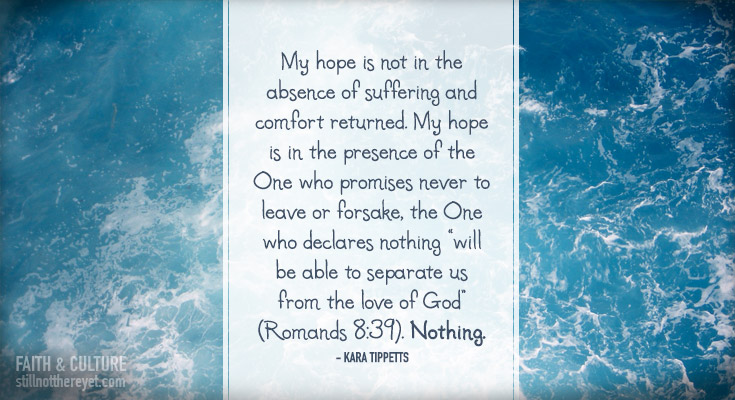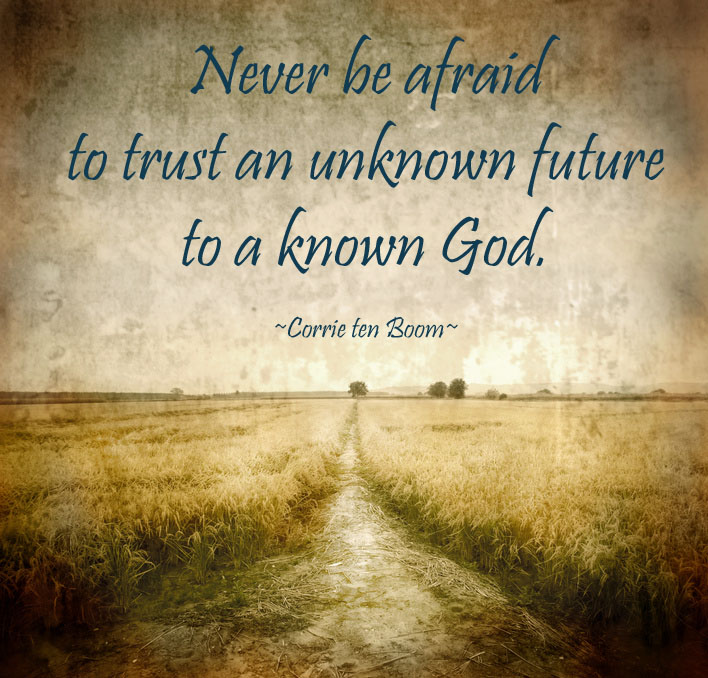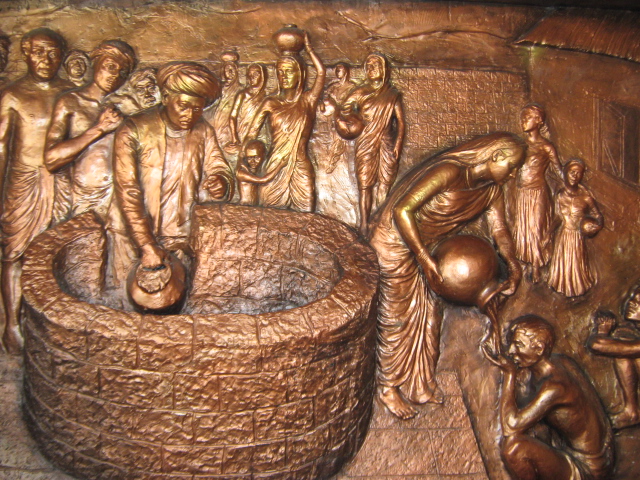Are you scared and sad and upset by the devastation of the earthquake in Nepal? More than 5000 dead, 8 million affected, cities, buildings and homes destroyed. It's more than a news story that you glimpse on the morning news. Or at least it should be.
When things like this happen, and they do, a lot, our human response is to look for reasons, answers, patterns. We ask, "Why?" Well, even when I suffer the tiniest little bit, or things don't go the way I expect or want them to, I ask "Why?"
Inevitably when it comes to death and suffering or anything out of our control, our thoughts also turn to God. And we wrestle with some difficult questions.
"Why did God allow this? Was he not ABLE to stop it? Was he not MERCIFUL enough to prevent such suffering if He could? Or did He not KNOW?"
Some of us give up on the idea of a loving, merciful God. There IS no pattern. Life is just meaningless suffering. Atheism or agnosticism seems the only option.
But some us feel like there HAS to be meaning, that the fact that we are instinctively repelled by evil and suffering means that that was NOT what we were made for, that it is not the original plan, that we WERE made to be happy, and that Evil is the anomaly, not Good.
So then we have to face the question, as Peter Kreeft put it:
If God is so good, why is his world so bad? If an all-good, all-wise, all-loving, all-just, and all-powerful God is running the show, why does he seem to be doing such a miserable job of it? Why do bad things happen to good people?
These questions are nothing new. But each of us has to ask them, and search for answers.
I don't plan to answer them here, but to leave you some links that might help if you are struggling with these questions.
But I do want to say a couple of things I believe:
1. A LOT of suffering in the world is directly caused by the sin and selfishness of the human race. We can't blame God for war, for unjust societies, for wealth and poverty living side by side, for broken families, for our own carelessness or selfish misuse of nature that has led to polluted water sources, poisonous air, etc. We can squarely take the blame for that ourselves.
2. As Christians, we believe that suffering and death entered the world when our ancestors chose to turn away from God. The natural harmony that existed was broken, as was the harmony of our relationships (from self-gift to use). God wrote the play, as actors with free will, we changed the plot.
3. That doesn't necessarily mean that God sends natural disasters as a judgment or punishment for sin. Someone passed on a forward yesterday that basically said that 'because of persecution against Christians, God's rage was expressed through his creation by natural calamities'. I was shocked to find that many people believe that natural disasters are sent by God as a judgment or punishment. How can we know that? How can we judge that other people's sins deserve or need an earthly punishment, and ours don't? Or that Haiti or the Philippines somehow deserves natural disasters, but a post-Christian Europe doesn't? That God wills that innocent children should suffer because some people from their region sinned?
4. 'God permits' seems very similar to 'God wills' (or causes, or sends), but they are vastly different, and can completely change the meaning of who God is.
5. There are no easy answers. I hate the glib answers that people give when there are complex questions of deep suffering, without entering into the other person's suffering. 'It is better that way.' 'My thoughts are with you.' 'I'll pray for you.' Without really praying, or taking a moment to really taste (or imagine) what they must be going through, or thinking "IS there some physical way I can alleviate their pain?"* Sometimes we just have to accept that we don't know the answers.
I spent some time researching what the Church teaches about suffering, evil and the reasons for their existence, and I'm going to share a few good articles and a video:
Are natural disasters truly “acts of God”?
Many people suffer when catastrophes strike, including those who are innocent of serious sin or wrong-doing. Blessed Pope John Paul II, in his Apostolic Letter Salvifici Doloris, uses the Biblical story of Job to show us that suffering is not always sent as a punishment. He explains how Job was afflicted by “innumerable sufferings” and that Job's friends claimed “he must have done something seriously wrong. For suffering—they say—always strikes a man as punishment for a crime; it is sent by the absolutely just God and finds its reason in the order of justice.”
“In their eyes,” Blessed John Paul says, “suffering can have a meaning only as a punishment for sin, therefore only on the level of God's justice, who repays good with good and evil with evil.” This is the same claim that people make when they claim that all natural disasters are “an act of God.” Blessed John-Paul says that the story of Job demonstrates that this claim is false. He writes, “While it is true that suffering has a meaning as punishment, when it is connected with a fault, it is not true that all suffering is a consequence of a fault and has the nature of a punishment. The figure of the just man Job is a special proof of this in the Old Testament. Revelation, which is the word of God himself, with complete frankness presents the problem of the suffering of an innocent man: suffering without guilt.
Suffering may sometimes be sent by God as punishment for sins, but not always. Regarding why God allowed any particular natural disaster, God's intentions are a mystery, and we should refrain from speaking on behalf of God. ”
Because of the Fall, nature is no longer perfectly ordered. While there is much good in nature, disasters such as floods, hurricanes and tornados also occur. These events do not come from a direct “act of God,” but rather are the result of the workings of an imperfect natural world. This imperfection does not come from God but from evil. It’s natural then—and right—for men and women to be horrified by the consequences of natural disasters—these are testaments not to the character of God but the character of evil. [Read the rest here.]
The Problem of Evil by Peter Kreeft
A child on the tenth story of a burning building cannot see the firefighters with their safety net on the street. They call up, "Jump! We'll catch you. Trust us." The child objects, "But I can't see you." The firefighter replies, "That's all right. I can see you. We are like that child, evil is like the fire, our ignorance is like the smoke, God is like the firefighter, and Christ is like the safety net. If there are situations like this where we must trust even fallible human beings with our lives, where we must trust what we hear, not what we see, then it is reasonable that we must trust the infallible, all-seeing God when we hear from his word but do not see from our reason or experience. We cannot know all God's reasons, but we can know why we cannot know.[Read the rest here.]
God's Answer to Suffering by Peter Kreeft (This is one of the most moving and poignant articles I have ever read- read it!)
In coming into our world he came also into our suffering. He sits beside us in the stalled car in the snowbank. Sometimes he starts the car for us, but even when he doesn't, he is there. That is the only thing that matters. Who cares about cars and success and miracles and long life when you have God sitting beside you?[Read the rest here.]
Fr. Robert Barron on 'Why is There So Much Disorder in the Universe? ' (video)
Natural disasters - from God or because of us?
But as followers of Jesus we cannot rush to blame victims for the evil visited upon them – nor can we blame God, whom Scripture reveals as all loving and all merciful. That doesn’t mean we will come to an easy understanding of why bad things happen to good people – most times we will have to wait with the patience of a Job to learn the answers to those questions – which God will tell us surely; but not necessarily on this side of heaven. [Read the rest here.]
You Were on the Cross- Matt Maher (Youtube song)
*Like St. James said, "What good is it, my brothers and sisters, if you say you have faith but do not have works? Can faith save you? If a brother or sister is naked and lacks daily food, and one of you says to them, ‘Go in peace; keep warm and eat your fill’, and yet you do not supply their bodily needs, what is the good of that?"




















